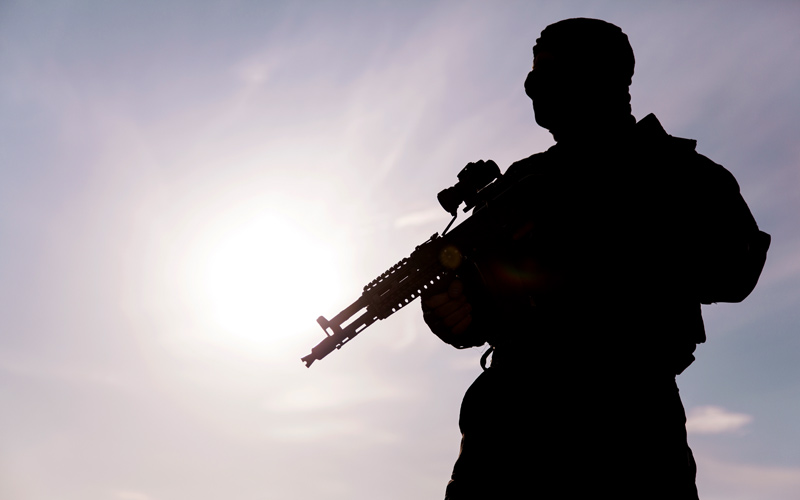Former Teen Jihadist Shares Cautionary Tale in New Memoir

Leaving for Syria in the company of his older brother and his best friend, a Franco-Moroccan managed to leave a Jabhat al-Nosra, affiliated with Al-Qaeda, katiba to return to France. After being sentenced to 4 years in prison, including 1 year suspended probation in the first instance and on appeal in 2017 and 2018, he publishes a confessional book to close this chapter of his life, but also "to raise awareness among young people who could be seduced by jihadist propaganda".
"Me, Gabriel jihadist at 16", Rue de Seine editions). This is the confessional book that Gabriel Saidi (a pseudonym), 26, father of two children, co-wrote with RTL journalist Thomas Prouteau, in which he recounts a part of his life story. His meeting with Hakim (again a pseudonym) turns his life upside down. "At first, it’s the father of two classmates. My best friend, of Chechen origin, knew him. One day, as we were leaving school, he invited us to join him at the neighborhood stadium to talk. He talks to us about religion, the word of God, he encourages us to pray, to respect our parents... He encourages us to come back and see him, and unfortunately we go back. We will then meet him very regularly and, gradually, his discourse will evolve towards radicality. During the first meeting we are only 10 years old," he recounts to Le Parisien.
Hakim was able to convince Gabriel to go to Syria by surfing on "the news, the unrest in Tunisia and then in Libya". "He was the first to talk to us about Syria, or more specifically about the sacred land of Sham that we absolutely had to protect," adds the one who was born of a Franco-Moroccan couple, raised in a suburban neighborhood of a large city in southern France. "It’s terrible when I think about it now, but at the time I was ready to lose my life to save this land in the name of religion. He had eaten our brains. On the plane, I was sad to have left my parents, but I dried my tears with a smile, because I was happy." In November 2013, Gabriel, then 16 years old, leaves for Syria in the company of his older brother and his best friend. The teenager is seduced by what he sees on his arrival in Syria. "It was in line with what I expected: the black flags and the bombings. I have a hard time admitting it, but I was proud. We were taken care of with military and religious training to keep us in this ideology. I didn’t participate in any fighting, but I carried out ribat (armed surveillance operations)."
After seven months, Gabriel loses his illusions and decides to leave Syria. "Several factors came into play. When I was injured I found myself alone and that allowed me to free myself from the group’s influence. I also had comrades who were killed in the fighting between Jabhat al Nosra and the Islamic State. It was totally ridiculous to risk my life fighting people who, in our madness at the time, were supposed to have the same thinking as us. Finally, there is the role of my father whom I regularly had on the phone. He too knew how to be clever: he did not oppose me directly but, little by little, without my realizing it, he presented me with another religious discourse. And then, there is the love of my mother."
Back in France, he faces justice. He will be sentenced to 4 years in prison, including 1 year suspended probation, in the first instance and on appeal in 2017 and 2018. After a year in detention, Gabriel meets the psychiatric nurse at the Fleury-Mérogis prison. She encourages him to continue writing his story. "She’s the first one I showed these pages to. She encouraged me to continue. It helped me understand the mechanism I had been caught up in." Today, he says he has definitively turned his back on the jihadist ideology. With his confessional book, he wants to "close a page" of his life. "To close a page of my life. And also to raise awareness among young people who could be seduced by jihadist propaganda: they are sold a dream, but they will only know hell. I was also offered to participate in interventions with an association that works on the radicalization of minors. I am happy to share my experience and participate in prevention actions."
His brother and his best friend are still in Syria. "I haven’t heard my brother’s voice since I left Syria. I know he’s still alive, that he has a little girl. I feel guilty because it was me who introduced him to Hakim. As for me, I managed to come back from all this ideology but at the price of a very tough fight when I only spent seven months on the ground. My brother has been there for ten years... Out of the thirty young people Hakim made leave, we are only three to have returned. Some are dead."
Related Articles
-

French Summer Tourism Slumps: Morocco Sees 21% Drop as Economic Woes Hit Travel Industry
5 September 2025
-

Undocumented Moroccan Delivery Driver Arrested in Nîmes, Faces Deportation
5 September 2025
-

Racial Controversy Erupts as Pierre Ménès Claims "Eleven Blacks" in French National Team
5 September 2025
-

Moroccan Man Faces Deportation Risk After Domestic Violence Conviction in France
4 September 2025
-

New Calvados Sub-Prefect Tackles Security Challenges Amid Looming National Strike
4 September 2025